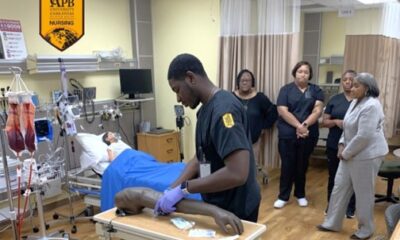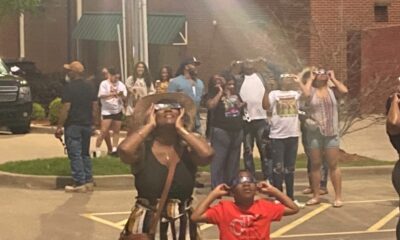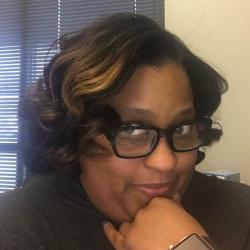Featured
Where are the presidential debate questions about federal judges?

Are debate moderators avoiding questions about federal judges?
I am not alone in sounding the alarm about the Nov 20 presidential debate. People For the American Way issued a statement, urging “moderators and producers of this week’s Democratic presidential primary debate to focus more attention on the issue of federal courts.”
Before the last debate on Oct 15, the American Constitution Society (ACS) sent questioners a letter noting “zero questions have been asked about what candidates would do to ensure their agenda is not stymied by an activist conservative court that was rigged against them when Mitch McConnell and the Republicans manipulated the size of the court in 2016/17 to steal a seat.”
Perhaps someone who was working on the October event heard the ACS request. CNN’s Erin Burnett, a debate moderator, asked Senator Elizabeth Warren: “would you consider adding more justices to the Supreme Court to protect Roe v. Wade? Your response?” Senator Warren answered that “there were a number of options.” Burnett did not follow up.
There are so many questions to ask candidates. Debate moderators can ask Burnett’s question again and follow up if someone tries to avoid answering. How do candidates plan to address Trump’s court packing with right-wing judges? Do candidates think that the courts should be reformed? Would candidates sign legislation to add TVs to courtrooms? Would candidates consider an 18-year term for Supreme Court judges, rather than lifetime terms? What kind of judicial nominees would candidates consider for the courts? And my all-time favorite question: would candidates consider appointing the first Black woman to the Supreme Court?
Journalists, in this case debate moderators, must mistakenly think that Democrats do not care as much about judges and the courts as Republicans do. Voters understand that right now the rule of law and basic civil rights are under attack. Nobody has forgotten the presidential insults on the ethnicity of a Mexican American judge or Trump’s twitter tantrums over court decisions overturning two attempted Muslim travel bans.
At the same time, Republicans are charging ahead with their court packing scheme. On Nov 7, Senate Majority Leader Mitch McConnell tweeted: “As of this afternoon, one in every four judges on the federal courts of appeals will have been nominated by @POTUS Trump and confirmed by us here in the Senate.”
The Majority Leader’s tweet just echoed Trump’s announcement at the White House the day before. As a Washington Post headline blared, Trump spotlights confirmation of 150-plus federal judges. The number is expected to balloon up to 182 in the coming weeks.
The effort to pack the courts with conservative judges outside the mainstream is not only happening at the federal level, but it is also occurring in the states. Take Texas for example. Last year, voters in Harris county and Houston elected 19 Black women to the bench – possibly not for long, however. Months later on Nov 6 – the same day that Trump boasted about federal judges, Republican lawmakers in Texas introduced legislation that would replace judicial elections in counties with more than 500,000 people with judges appointed by the governor.
Judges and the courts are hot topics among voters. Debate moderators should treat it like one. Watch the Nov 20 debate at 9 am ET on MSNBC or the Washington Post website. Speak up on social media. I plan to raise my voice and question the questioners.
According to an analysis by the Columbia Journalism Review, “questions from the first six Democratic debates, …, have focused primarily on health care (19 questions), with significant numbers of questions about Trump (17), accountability (15), immigration (14), and climate change (12).” Why have 12 presidential debates to ask questions about the same topics? Voters deserve more answers.
Holli Holliday is a practicing attorney and president of Sisters Lead Sisters Vote, a 501(c)4 nonprofit for, by and about Black women.

-

 Featured12 months ago
Featured12 months agoArkansas Sheriff Who Approved Netflix Series Says He Stayed ‘In His Lane’
-

 HBCUS12 months ago
HBCUS12 months agoSenator Boozman Delivers $15 Million to Construct New UAPB Nursing Building
-

 News12 months ago
News12 months agoMillions In the Path of The Total Solar Eclipse Witnessed Highly Anticipated Celestial Display
-

 Featured9 months ago
Featured9 months agoCalifornia Is the First State to Create A Public Alert for Missing Black Youth
-

 Featured9 months ago
Featured9 months agoAfrican American Leaders Stay the Course Amid Calls for President Biden To Bow Out of Race
-

 Featured9 months ago
Featured9 months agoThe Debate Fallout Lands on Both Candidates









